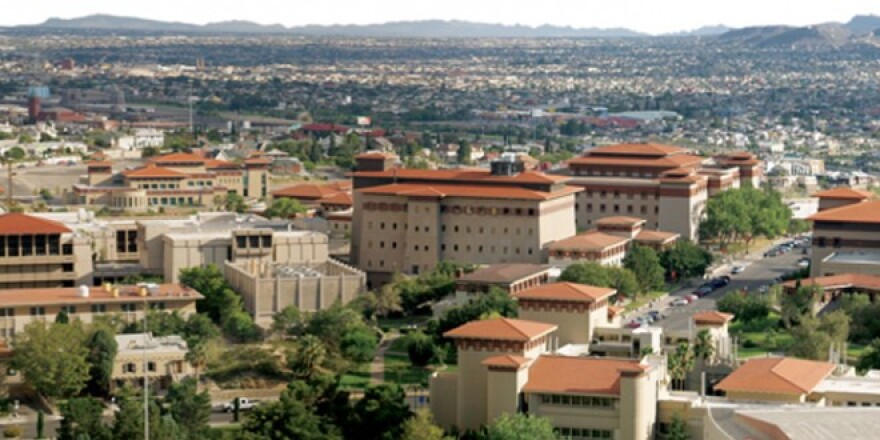Improving pathways to the professoriate for Hispanics in environmental sciences and engineering (ESE) and related fields is the goal of a new $3 million grant from the National Science Foundation that The University of Texas at El Paso will share with the City College of New York (CUNY-CCNY).
The five-year project will develop, implement and study a model for training and transitioning Hispanic-American doctoral students majoring in ESE fields to STEM (science, technology, engineering and math) instructional faculty at community colleges and other associate degree-granting institutions. The team will research the effectiveness of planned interventions, and the barriers that affect student selection of an academic career and the mitigation of those barriers.
“Hispanics represent 5.6 percent of the professoriate, according to the National Center for Education Statistics,” said Miguel Velez-Reyes, Ph.D., professor and chair of electrical and computer engineering and lead of the grant at UTEP. “Universities and colleges struggle to recruit, retain and promote Hispanic STEM faculty who can serve as role models and academic leaders for Hispanic students to learn from, to work with, and to emulate. This effort will help address the challenges that affect the transition of Hispanic doctoral students into academic careers at, in particular, community colleges and two-year colleges, where nearly half of Hispanic students start their college education, according to Pew Research.”
UTEP will receive $1.1 million as part of the proposed effort. Work on the grant is scheduled to begin July 1, 2017 and endJune 30, 2022.
The project includes developing and testing three primary intervention components in the model: a training and mentoring program for effectively teaching ESE courses at community colleges; training to mentor undergraduate student researchers; and a professional development program to address career advancement in ESE and academia. The integrated research will examine the factors that influence the success of advanced level Hispanic doctoral students primarily of Caribbean or Mexican origin as they complete doctoral degrees and choose a career path. Three cohorts of Hispanic Alliances for Graduate Education and the Professoriate (H-AGEP) Fellows will be recruited during the duration of the grant. These students will be provided with the robust skill set and supportive mentoring needed to make them qualified and ultimately successful candidates for the professoriate.
“Dr. Velez-Reyes’ work to promote diversity in the environmental science and engineering professoriate puts into practice the mission of UTEP and the College of Engineering,” said Howard Daudistel, Ph.D., interim provost at UTEP. “The kind of extensive preparation that is supported by this UTEP partnership with CCNY and NSF will position our doctoral students for success in academic careers. It’s a great example of combining access and excellence to create new professional opportunities.”
UTEP faculty involved in the project include Velez-Reyes, the George W. Edwards, Jr./El Paso Electric Distinguished Professor in Engineering and chair of the Department of Electrical and Computer Engineering; Ivonne Santiago, Ph.D., clinical professor in the Department of Civil Engineering; and Craig Tweedie, Ph.D., professor of biological sciences and director of the doctoral program in environmental science and engineering.
There are three community college partners in the Hispanic AGEP Alliance: El Paso Community College; LaGuardia Community College in Long Island City, New York; and Queensborough Community College in Bayside, New York.


